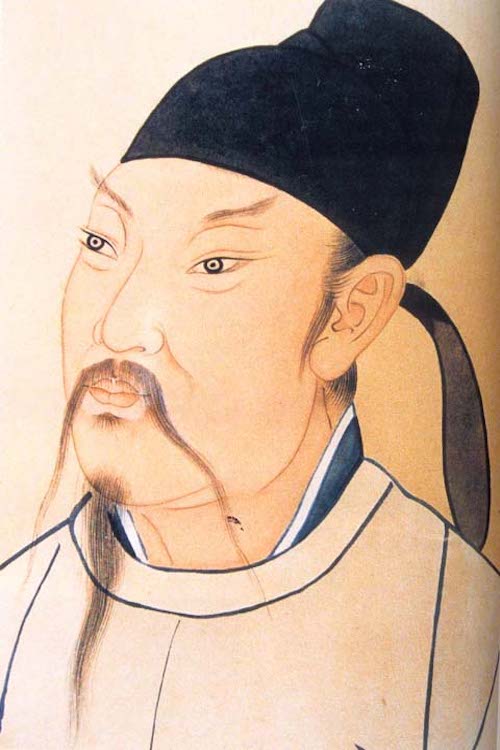
Amidst the blooms, a jug of wine I pour,
A solitary drinker, forever more.
With cup aloft, I toast the silvery moon,
And with my shadow, a trio, we swoon.
Oh Moon, where do you find such pleasure in drink?
Oh Shadow, why do you linger, on the brink?
Let us savor this moment, this spring so fair,
With moonbeams and shadow, as companions rare.
The Moon listens as I serenade the night,
Roaming the skies, a celestial sprite.
My Shadow dances to each step I take,
Bounding and rolling, for my shadow’s sake.
While we are sober, let us make merry,
But when we’re drunk, our paths will surely vary.
Oh Moon, let us be friends, till the end,
And meet again, on the galaxy’s bend.
This poem was written about the third year of Emperor Xuanzong’s Tianbao (744), when Li Bai was in Chang’an, at a time when he was frustrated in officialdom. Under the title of this poem, the word “Chang’an” is annotated in both Song and Miao versions, which means that these four poems were written in Chang’an. At that time, Li Bai’s political ideals could not be realized, and he felt lonely and depressed. But in the face of the dark reality, he did not sink, did not join forces with others, but pursued freedom and yearned for the light, because of this work.
花間一壺酒,獨酌無相親。
舉杯邀明月,對影成三人。
月既不解飲,影徒隨我身。
暫伴月將影,行樂須及春。
我歌月徘徊,我���影零亂。
醒時同交歡,醉後各分散。
永結無情遊,相期邈雲漢。

Li Bai (701-762), considered one of China’s greatest poets alongside Du Fu, lived during the Tang Dynasty’s golden age of poetry. Known for his vivid imagery and deep emotion, Li Bai’s work spans about 1,000 poems on themes like nature, friendship, and existential reflections. Celebrated for his spontaneous verse and exploration of Taoist ideals, Li Bai’s poetry also deeply admires the natural world and ancient times, often challenging life’s ordinary constraints. His depiction of China’s landscapes combines natural beauty with personal sentiment. Earning the title ‘Poetry Immortal,’ Li Bai’s influential poetry is globally admired for its artistic and philosophical depth.
Image: MidJourney/DALL-E 2